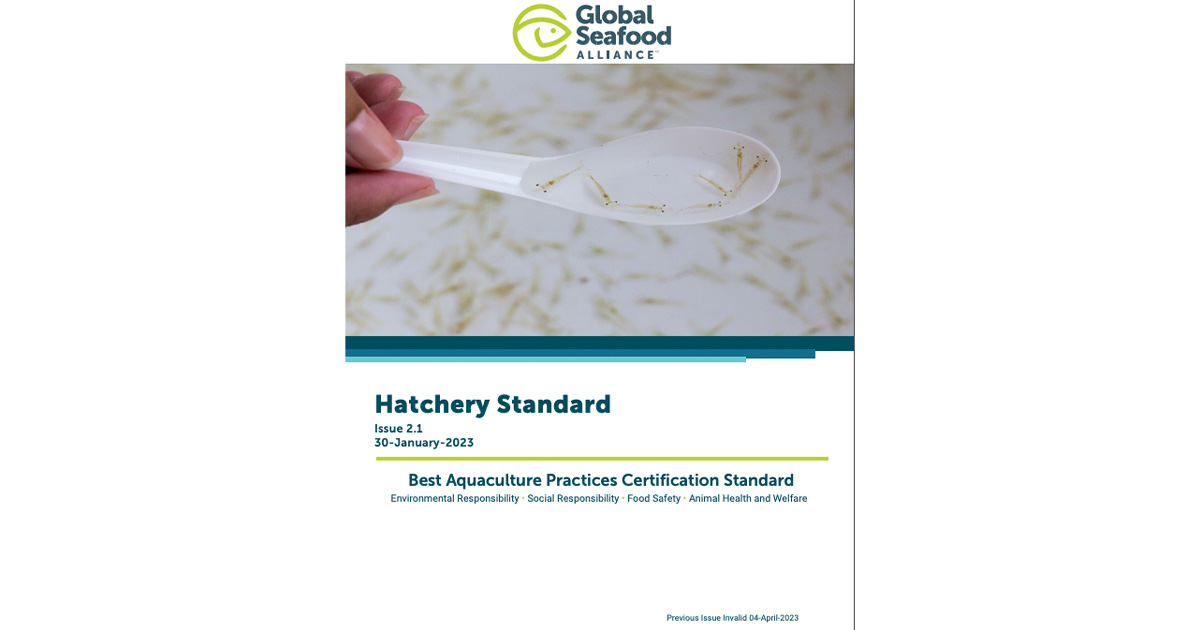The Global Seafood Alliance (GSA) released Issue 2.1 of its Best Aquaculture Practices (BAP) Hatchery Standard, which will be required for any hatchery that submits an application on or after April 4, 2023.
No audits will be conducted on version 2.0 due to the removal of “Outsourcing Activity” and “Supplier Activity” definitions, as well as the rewording of Version 2.0 Clause 3.58 (current Version 2.1 Clause 3.56) for clarity.
The standard applies to all aquaculture hatchery and nursery facilities for finfish, crustaceans, and mollusks that produce eggs and/or juvenile aquatic animals for live transfer to other aquaculture facilities and all species covered by any BAP farm standards.
A number of new requirements were added to the standard, including:
- Hatcheries are now required to conduct a risk assessment of potential human food safety risks associated with their operations.
- The worker safety and employee relations requirements have been updated, including requirements for wages and benefits, working hours including overtime, voluntary labor, child labor, and young workers, use of workers from recruitment agencies, discrimination, disciplinary procedures, worker voice, and worker health and safety.
- The effluent monitoring parameters and limits for land-based systems have been updated and include unique parameters and limits for recirculating aquaculture systems (RAS).
- The water quality monitoring requirements for cages or net pens in fresh or brackish water have been revised, consistent with the approach adopted in the BAP Farm Standard 3.0.
- The BAP Fish In Fish Out (FIFO) limits for hatcheries using over 50 mt dry feed/year have been revised, and a requirement to calculate the Forage Fish Dependency Ratio (FFDR) has been added.
- Requirements for live feeds produced in hatchery operations have been added.
- Hatcheries are required to control the sources of their broodstock/eggs/etc. (stocking material) via an effective internal auditing process.
- Requirements to limit escape events were updated.
- Traceability requirements, particularly those related to demonstrating BAP Star Status, were updated, and trace-forward and trace-back exercises are now required.
- “Outsourcing activity” to an uncertified “downstream” hatchery/nursery phase will not be allowed under the certification process of hatcheries. The stage of the seedstock supply chain immediately preceding transfer of live aquatic products to a farm must be certified for the hatchery-related star to transfer through to a BAP-certified farm.



